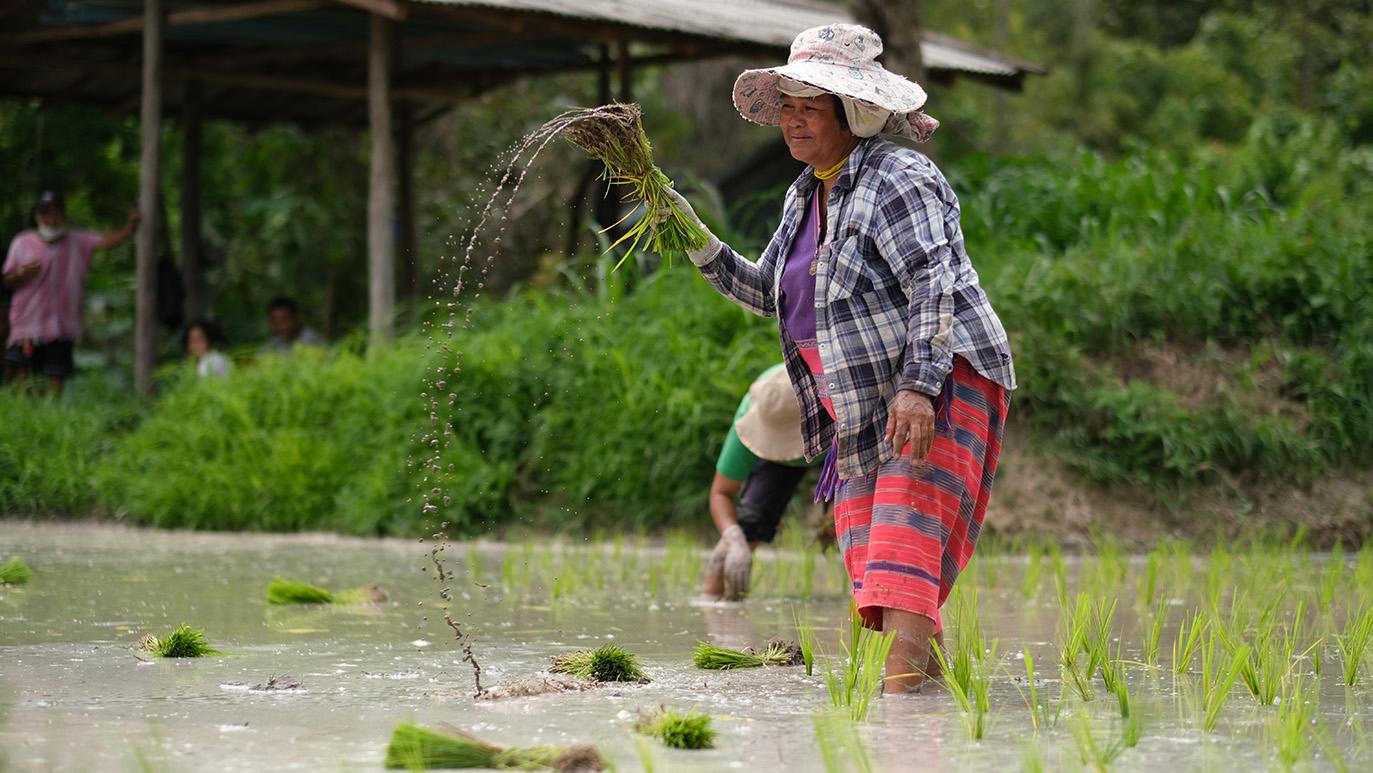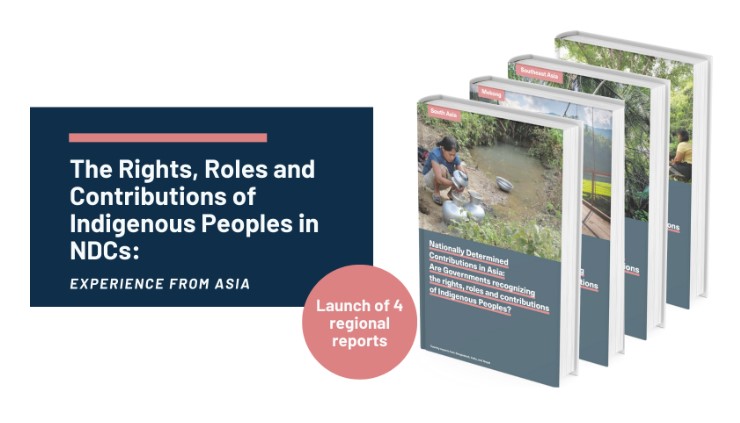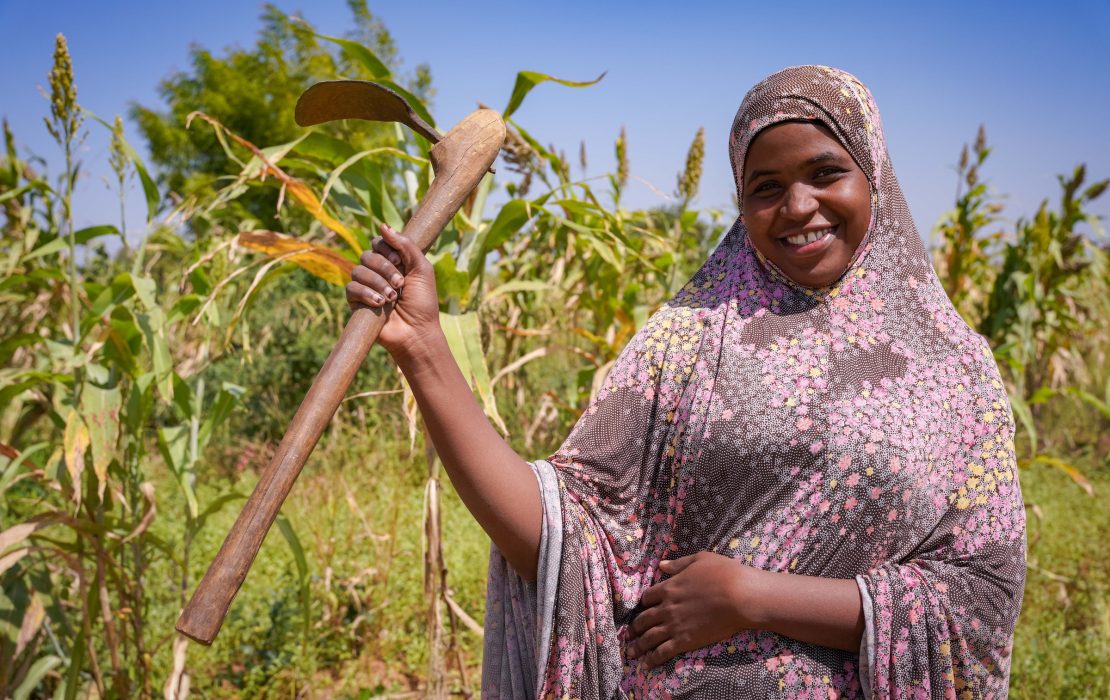
Photo: Lakpa Nuri Sherpa, Asia Indigenous Peoples Pact
It is no secret that Indigenous Peoples and local forest communities have been left out of decision-making processes for far too long. Time and time again, we have seen Indigenous leaders publicly demanding to be recognized and respected as rightful owners of forests.
As government representatives gathered at the recent Bonn Climate Change Conference in June 2022, new groundbreaking analysis revealed that international climate pledges will be unsuccessful if they do not consider local realities – especially the perspectives and knowledge of Indigenous Peoples.

Read the Overview report, and Regional Reports for Mekong, South Asia, and East Asia
The findings are yet another reminder that it is impossible to effectively combat climate change without putting the rights and knowledge of Indigenous Peoples at the heart of the implementation and monitoring of Nationally Determined Contributions (NDCs.)
Indigenous Peoples are invisible as agents of change
Working with Indigenous authors in ten countries in Asia, Asia Indigenous Peoples Pact led a review of how the rights, roles, and knowledge of Indigenous men, women, youth, and persons with disabilities are addressed in national-level climate policies and plans.
One of the key conclusions of the series of four regional reports is that, across all ten countries, Indigenous Peoples are nearly invisible as actors or agents of change. Instead, they are often viewed as victims of climate change, or as beneficiaries of climate projects. Yet across all ten countries, the lands, and territories of Indigenous Peoples serve as critical remaining ecosystems for climate change mitigation and adaptation.
In fact, research shows us that despite increasing external pressure on their land, many forests and other ecosystems within areas managed by Indigenous Peoples are in better health than nature outside these areas. Indeed, forests are also central to the traditions, cultures, and livelihoods of some 70 million Indigenous People worldwide who provide environmental stewardship to at least 36 percent of the world’s intact forests.
Each of the reports in the series highlights Indigenous Peoples’ agency, i.e., how they are making invaluable contributions—through their day-to-day way of life as well as through targeted projects—to global climate goals, as set out in the Paris Agreement.
Here are a few ways in which Indigenous Peoples make invaluable contributions to the fight against climate change.
1. Forests and biodiversity preservation
Though they constitute only 5 percent of the global population, Indigenous Peoples manage around 25 percent of the world’s land, which contains much of the planet’s biodiversity and the carbon stored in soil and biomass. Despite increasing external pressures , many forests and other ecosystems within areas managed by Indigenous Peoples are in better health than nature outside these areas.
2. Sustainable use of natural resources
One key example of sustainable resource use by Indigenous Peoples—a practice that is embedded in their customs—is the practice of shifting cultivation. Studies have found this method to be an excellent source of carbon storage. Yet it's regularly defined as a driver of deforestation in national policies, since there is big variation in the shifting cultivation practices carried out by different people.
3. Traditional knowledge for climate change adaptation
Indigenous knowledge and practices can make an invaluable contribution towards enhancing societal resilience to climate change. It is this knowledge and these practices that national adaptation actions to combat the impacts of climate change should be based on and guided by.
4. Transmission of traditional knowledge
The efforts of Indigenous Peoples, particularly of women, to ensure the continued transition of knowledge from older knowledge-holders to young people is vital. Yet many Indigenous communities find people leaving their birthplace to take up education or work, with increasing pressure on youth to do so, which risks an important “brain drain” for future climate action.
5. Food security and sovereignty
Indigenous Peoples stand as inspiring examples of how to build and maintain resilient food systems and inform the transformation of larger food systems to adapt to a changing climate.
Despite the protection and contributions that Indigenous Peoples offer to climate action around the world, a concerning observation from the report series is that the climate policies analyzed almost exclusively failed to address land tenure insecurity and the related threats to traditional livelihoods faced by Indigenous Peoples.
In some cases, climate policies even contribute to the criminalization of traditional sustainable practices by defining them as drivers of deforestation.
Watch the recording of the latest UNFCCC side event here to learn more about the report’s findings, with specific case studies from Asia.
It is paramount that countries recognize the importance of land security for Indigenous communities and reflect this in their climate policies, for insecure land tenure threatens cultural survival and vital knowledge systems that protect our ecosystems.
Recognition of Indigenous Peoples as equal partners
Representatives of Indigenous Peoples from around the world released the Indigenous Peoples Declaration on June 3, at the conclusion of the Stockholm+50 international conference in Sweden.
The declaration criticized national and international organizations for failing to include Indigenous Peoples in the planning and execution of conservation and climate change initiatives that directly affect their lands and communities. "Conservation is typically done for us and around us, not with us", reads the proclamation.
The proclamation echoes the findings of the AIPP reports and provides a strong call to action: National climate policies must recognize Indigenous Peoples as rights-holders, knowledge-holders, and equal partners in efforts to combat climate change. Without this essential collaboration, nations will find themselves making promises that they can’t keep.
On this International Day of the World’s Indigenous Peoples, let us promise to honor the role of Indigenous women, men, youth, and persons with disabilities in the preservation of traditional knowledge and their invaluable contribution to forests, biodiversity, and food systems all around the world.
Editor’s note:
If you found this blog interesting, please check out the detailed summary of findings, and recommendations by viewing the Overview Report.
Analysis undertaken by the Asia Indigenous Peoples Pact (AIPP) and the Forest Peoples Programme (FPP) over the past two years, has been supported by UNDP and the UN-REDD Programme, among other partners. The report series investigates the rights, roles, and contributions of Indigenous Peoples in the NDCs of ten countries in Asia against nine indicators.
UNDP’s Climate and Forests Programme, is working to encourage national participatory dialogues that enhance the inclusiveness of NDCs, with particular attention given to the upholding of Indigenous rights and knowledge in national climate plans. The initiative represents a lever for participatory policy engagement, enabling use of the diverse instruments and practices outlined by UN-REDD.


